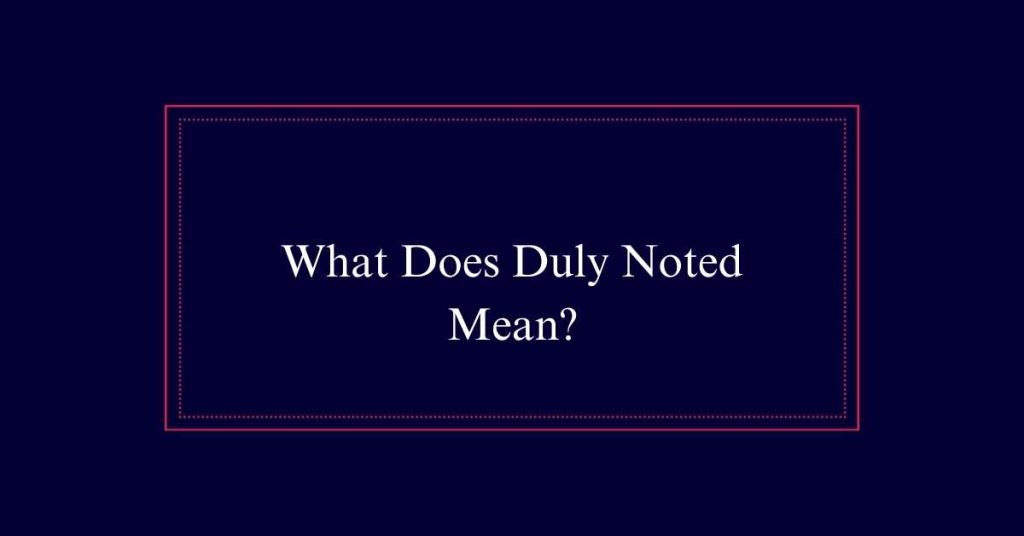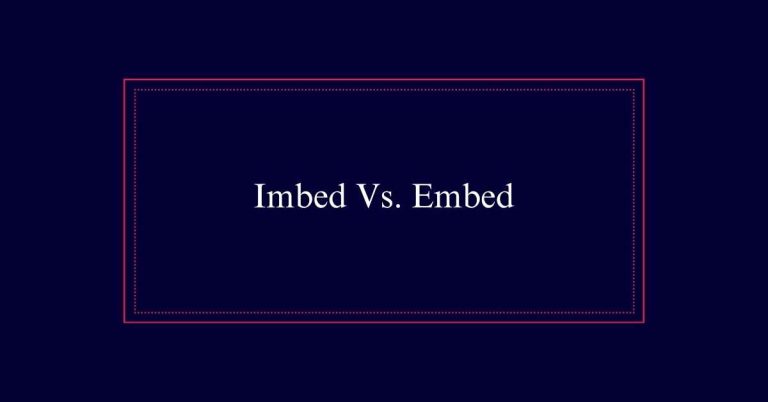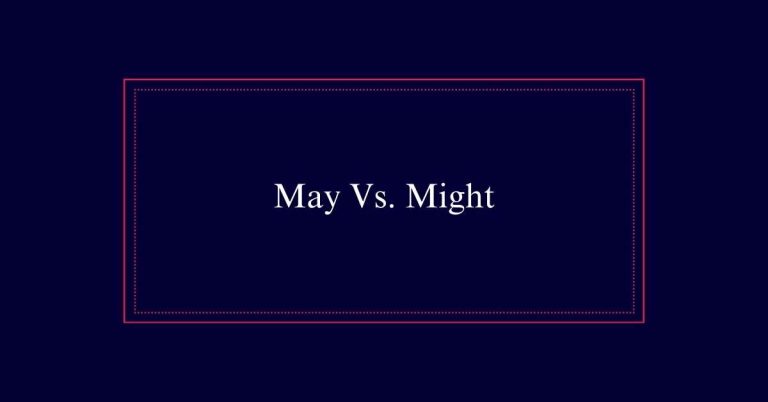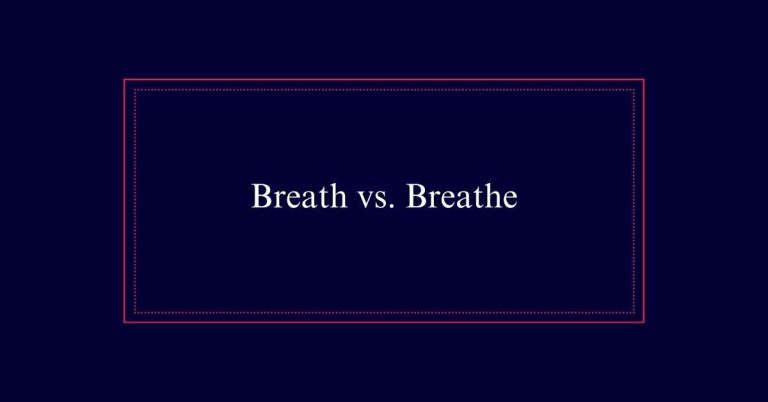What Does Duly Noted Mean?
The phrase “duly noted” means that something has been properly acknowledged or recognized. It combines “duly,” which implies doing something at the right time and in the proper manner, with “noted,” meaning observed or recorded.
This expression is often used in professional contexts to show that a point or concern has been heard without necessarily agreeing with it or indicating further action. Though typically used politely, its tone can occasionally come across as dismissive depending on context.
Definition of ‘Duly Noted’
The phrase ‘duly noted’ means that something has been properly acknowledged or understood. It combines ‘duly,’ which implies doing something in the proper way and at the correct time, with ‘noted,’ meaning to record or take notice of something.
This phrase is often used to indicate that a point or opinion has been recognized. For instance, in a meeting, one might say, ‘The objection was duly noted by the secretary and we began.’ It serves as a straightforward acknowledgment without necessarily implying agreement or action. Frequently, it is a simple way to show that a comment or concern has been heard.

Breaking Down ‘Duly’
To understand ‘duly noted,’ one must first grasp the meaning of ‘duly.’ The term ‘duly’ signifies something done in a proper manner and at the appropriate time. It originates from the word ‘due,’ which implies a rightful or suitable action.
When something is done ‘duly,’ it is performed with the necessary correctness and timeliness. This guarantees that the action meets established standards or expectations. In professional settings, using ‘duly’ underscores that a response or acknowledgment aligns with proper procedures or protocols.
Breaking Down ‘Noted’
‘Noted’ signifies the act of observing, recording, or acknowledging something. It involves taking notice of a detail or remark. When someone says something is ‘noted,’ it means they have paid attention to it and possibly recorded it for future reference.
This term is often used in both formal and informal settings to indicate that information has been received and acknowledged. For example, during meetings, participants might say ‘noted’ to show they are listening and understand the points being made. In written communication, ‘noted’ can serve as a shorthand for recognition.
Acknowledgment in Communication
Acknowledgment in communication plays a crucial role in ensuring clarity and mutual understanding. When someone uses phrases like ‘duly noted,’ they signal that the information has been received and understood. This simple act of acknowledgment can have significant impacts.
Validation: It shows that you have heard and recognized the other person’s input.
Feedback Loop: It closes the loop in communication, confirming receipt of the message.
Responsiveness: It demonstrates attentiveness and responsiveness to others’ contributions.
Professionalism: It maintains a professional tone, especially in formal settings.
Is ‘Duly Noted’ Rude?
The phrase ‘duly noted’ can sometimes be perceived as rude, depending on the context and tone. When used dismissively or sarcastically, it may come across as condescending. The interpretation largely hinges on the speaker’s intent and the listener’s perception. For example, a curt reply of “duly noted” in response to constructive criticism might suggest disregard.
Here is a table to illustrate:
| Scenario | Perception |
|---|---|
| Formal meeting acknowledgment | Professional and respectful |
| Response to a trivial complaint | Dismissive and possibly rude |
| Reply to detailed feedback | Potentially sarcastic |
Sarcasm and ‘Duly Noted’
Understanding the potential for rudeness in the phrase ‘duly noted’ often stems from its use in a sarcastic tone. When used sarcastically, ‘duly noted’ can convey a dismissive or condescending attitude. This may result in misunderstandings or hurt feelings, especially in professional settings.
Sarcasm can alter the meaning drastically, leading to:
- Dismissal: It can imply that the feedback is acknowledged but will be ignored.
- Condescension: It may suggest that the speaker feels superior.
- Insincerity: The phrase might come across as disingenuous or mocking.
- Conflict: Sarcasm can escalate tensions rather than resolve issues.
Common Usage Mistakes
Common usage mistakes with ‘duly noted’ often arise from confusing similar-sounding words like ‘dully’ or ‘dually.’
‘Dully noted’ means something is acknowledged in a boring or sluggish manner, which is incorrect.
‘Dually noted’ implies something is recognized in two ways, another error.
Adding an ‘e’ to form ‘duely noted’ is also a common misspelling. These mistakes can lead to misunderstandings and reduce the clarity of communication.
To avoid these errors, remember that ‘duly’ means properly or at the right time. Using the correct phrase, ‘duly noted,’ guarantees your acknowledgment is understood as intended, whether in formal writing or casual conversation.
Proper Context for Use
Proper use of ‘duly noted’ guarantees clear and respectful acknowledgment in varied situations. It is important to use this phrase correctly to avoid misunderstandings. In a professional setting, ‘duly noted’ can effectively communicate that the information has been received and understood.
- Meetings: Acknowledging a point raised by a colleague.
- Emails: Confirming receipt of information or instructions.
- Formal correspondence: Recognizing feedback or input from stakeholders.
- Project management: Documenting decisions or objections during discussions.
Using ‘duly noted’ appropriately shows attentiveness and respect for others’ contributions. It helps maintain professionalism and clarity in communication. When used sincerely, it assures the speaker that their input is valued and considered. Always consider the tone and context to avoid appearing dismissive.
Examples in Sentences
Providing examples in sentences helps clarify the proper usage of ‘duly noted’ in various contexts. For instance, in a business meeting, one might say, ‘Your feedback on the proposal is duly noted.’ This indicates that the feedback has been acknowledged and recorded.
In a more formal setting, a judge might state, ‘The objection is duly noted,’ affirming that the concern has been recognized. In everyday conversation, a supervisor might say, ‘Your concern about the deadline is duly noted,’ signaling that the issue is understood.
These examples demonstrate how ‘duly noted’ can be used to acknowledge information, concerns, or feedback in a respectful and appropriate manner. This promotes effective and professional communication.
Enhancing Communication Skills
Improving communication skills involves understanding the nuances and proper usage of phrases like ‘duly noted.’ This phrase, when used correctly, can convey acknowledgment and respect for someone’s input. Misusing it can lead to misunderstandings or perceived rudeness.
To enhance communication skills:
- Active Listening: Pay close attention to what others are saying before responding.
- Context Awareness: Use ‘duly noted’ appropriately based on the situation and relationship.
- Tone Consideration: Guarantee your tone matches the intent behind your words to avoid sounding sarcastic.
- Clarity and Precision: Be clear and precise in your language to prevent misinterpretation.






